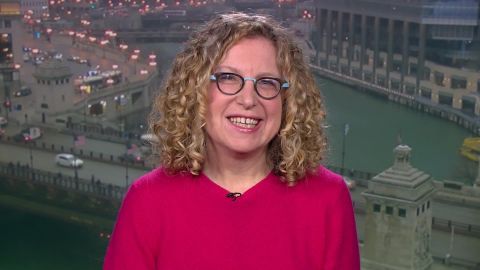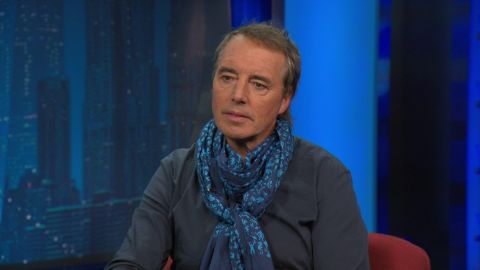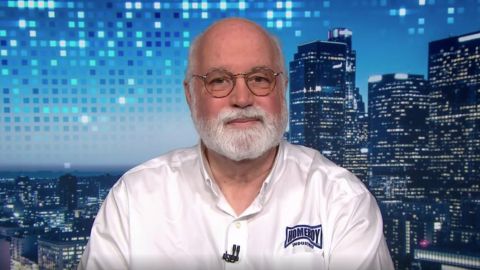Read Transcript EXPAND
FATHER GREG BOYLE, FOUNDER AND DIRECTOR, HOMEBOY INDUSTRIES: Yes, if we knew that, in fact, kids joined gangs because they’re stuck in despair or they’re weighed down by a huge trauma or are suffering from mental illness, then as a society we would infuse help to kids for whom hope is foreign, we would help heal the damage and we would deliver mental health services in a timely and culturally appropriate way. This is what we would do if our diagnosis was correct. But more often than not, we kind of go down a wrong path and nobody has ever met a treatment plan that was born — a good treatment plan born of a bad diagnosis. So, getting this right is certainly an important first step.
CHRISTIANE AMANPOUR: But I’m shocked when I see some of the stories that you talk about. These kids have told you horrific stories. I mean, a boy who got his arm snapped in half by his father, another one who had to wear, you know, multiple layers of clothing to hide the blood because his mother had beat him so hard. I don’t know whether people understand that these people who have created so much mayhem from so much mayhem.
BOYLE: Well, it shouldn’t be so surprising that a traumatized person is going to traumatize people and a damaged person will cause damage. And so, if — on the ACES study, the Adverse Childhood Exposure Study, I mean, it’s a checkoff list of 10, you know, everything from child abuse to violence, to parents who are locked up or mentally ill or addicted to drugs. Everyone who walks through our doors is a nine or 10 on this ACES study. I grew up in the same city. I’m a zero on this study. So, I stand in awe at what these folks have had to carry rather than stand in judgment because they have been so abused and so tortured and terrified and I would not have survived a day — a single day of any of their childhoods. And so, once you have kind of an awe and respect for what they’ve had to endure, then you try to, I think, redouble your efforts to get them to a place where they can heal this damage. And at Homeboy we say the reverse of this, of course, is a cherished person is going to find their way more surely to the joy of cherishing themselves and others. And that’s what you want, is healing.
AMANPOUR: I mean, it is — healing, born of empathy and understanding and a willingness to take the next step with these people. To that end, you have said, and I believe I’m quoting you correctly, Homeboy Industries a key tenet is, nothing stops a bullet like a job. How do you specifically help rehabilitate these people, help, you know, build them up, make them whole again?
About This Episode EXPAND
Christiane Amanpour speaks with Peggy Orenstein about the messages our culture sends boys about emotional suppression and sexual aggression. She also talks to Father Greg Boyle about his organization Homeboy Industries, the largest rehabilitation program in the world for active gang members. Hari Sreenivasan sits down with National Geographic Fellow Dan Buettner to discuss The Blue Zones Project.
LEARN MORE


